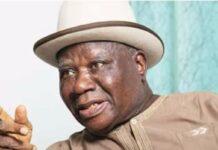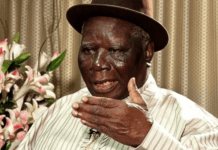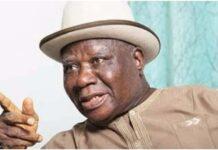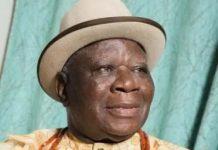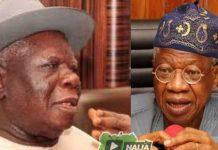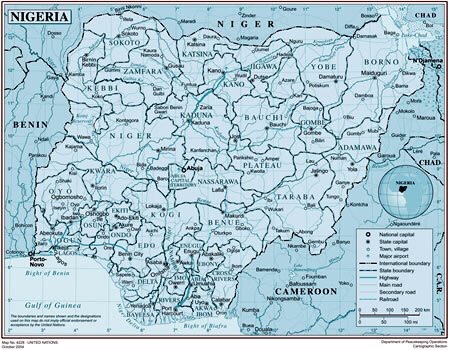
NaijaLiveTv.com
October 1, 2018 By Taiwo Adisa

Group Politics Editor, Taiwo Adisa, x-rays Nigeria’s 58-year sojourn after independence, highlighting the challenges that still stare the nation boldly in the face.
May expectations never seize from your horizons. That appears the prayer of the gods the day the independence oif Nigeria was pronounced on October 1, 1960. And it has always been so. Nigerians are perennially expectant better would come. They compare one government with the other in the belief that betters days would appear in form and reality sometimes.
And so, it has been in 58 years of Nigeria’s existence. It is a country of many potentialitics. But it has been one lamentation of wasted opportunities and mishaps in governance to the other. The land is buzzing with great opportunities; the people are swelling with energy, drive and passion, these are elements of greatness, but Nigeria has easily earned the tag of a limping General among its peers at independence.
Sometimes, its records show greatness in the field of sports, even though uncoordinated and unplanned; sometimes it records greatness in the different fields of knowledge but the governance scene has certainly ranked the country a Lilliputian, painting the picture of not just a toddler but an imbecile at birth.
The dawn of every October 1 is another avenue for lamentations by the elders who witnessed it all at independence. Several of them who are still around here lament the missed opportunities, with their benefit of the zeal and determination that yielded the hard-fought independence. Afenifere chieftain, Chief Ayo Adebanjo, Niger Delta leader, Chief Edwin Clark, former Kaduna State governor, Alhaji Balarabe Musa, among others have shouted themselves almost hoarse decrying the failure of governance and inglorious pursuance of one government after the other.
They tell us of the promise of heaven on earth that was Nigeria at independence and how disappointing its story has turned out in 58 years. Hear them: “It is obvious that as a nation we are yet to get to where we dreamt of due to bad management and leadership. What is the state of our electricity? What is the state of our education? What is the state of our roads and our health system? What is the state of our unity? Are we united as a nation after 58 years? That is why everybody is struggling for a change of government so that we can restart. The present government is the most woeful government we have ever had, and we are praying that we will be able to get rid of it,” said Chief Ayo Adebanjo.

President Muhammadu Buhari
Alhaji Babarabe Musa would attribute the failings of the Nigerian nation to the laxities in the system which he said had bred corruption, stealing and criminal waste of resources, leading to the quest for personal aggrandizement rather than public interest.
He said: “The public interest is for all-round development in any society or nation. The public interest is superior to personal interest and it is the primary condition for any development in any society, while the self-interest is the survival of the fittest and there is no nation that survives on the survival of the fittest.
The statesman and critic added: “There is need to correct this present power structure to the original arrangement as we had under the 1963 Constitution. Create six regions and make them viable. It was impossible to marginalise any of the three regions when they were in operations, as any of them was stronger to stand on their own.
“However, the creation of the Mid-Western region was a conspiracy between the power blocs, as its creation was against the interest of the South-West.”
The former Kaduna State governor also believes that restructuring could take Nigeria back on the path of honour, even though he seeks to qualify the type of restructuring he believes would work.
He said: “We need restructuring. l am in support of it inasmuch as we can determine what the restructuring is and the type of restructuring we want to achieve. However, one of the ideas of restructuring is advanced while some are backward, because it is very important. But some of the ideas are backward, like the return to the ethnic nationality. The return to a system whereby people are united is advanced.
“In the country today, some people are talking about restructuring because some people are backward. The most fundamental and advanced restructuring, for instance, is the major role of the state in the economy to ensure peace, equality, justice, dignity of human person and progressive human development for the whole country. For instance, restructuring as far as l am concerned is made up of four components.
“One, it’s Nigerians reconciling among themselves that would make them one nation and evolve a system that ensures that they are one nation with unity, that every Nigerian has the capacity to participate in the affairs of its nation. Let us have a nation where we have unity.”
South South leader and first Republic Minister of Information, Chief Edwin Clark has also been relentless in painting the picture of the glorious days and giving tips on how Nigeria can become great. He had recently posited that the adoption of state police and restructuring would lead Nigeria out of the woods.
He said, “The security challenges the country is currently facing will be overcome if we adopt restructuring. This is because the issue of security is local, and we cannot have effective security cover when everything is done from the centre. A major ingredient of restructuring is state police and it is when we have this and other community policing options that we can have proper security.”
“Restructuring will ensure that power devolves from the centre to the other federating units for effective governance. Why, for instance, would the Federal Government be involved in things like secondary education, health services, agriculture that are better handled by the states?

Chief Ayo Adebanjo
“The government at the centre, in an ideal federation, should only control areas like immigration, defence and maybe prison.
Restructuring will ensure that resources are freed up at the centre for the development of those local things like agriculture, health and secondary education.”
The statesmen are not alone in lamenting the failures of Nigeria across the decades. Former Anambra State governor, Mr. Peter Obi told the Nigerian Tribune in an interview that Nigeria has frittered away its opportunities for greatness, thereby languishing in the lowest ranks possible.
He said: “I gave you an instance of China. In 1980, the GDP of China was $341billion. The GDP of Nigeria your country was $143 billion. So, you can say that China was twice bigger than Nigeria. In terms of savings, Nigeria had in 1980 $10.5 billion and China had $10 billion.
“In terms of per capita, Nigeria was $870; China was $193.
“Today, China’s GDP is 12 trillion; thirty times bigger than ours.
China’s savings that was $10 billion is now $3 trillion. Somebody you were four times greater than before has moved miles ahead of you that is our crisis today. That is why the agitation is ongoing. It’s a simple thing. It’s the economy.
“I can go on and on and show you. South Korea just in savings alone had $3 billion when we had $10.5 billion. Today, they have $365 billion and we have $30 billion. I can go on and show you Indonesia, Thailand. Thailand was $5 billion when we had $10 billion. So, why don’t we take the right steps and do the right things?”
There have been several attempts at putting Nigeria on track. Indeed, the frontline nationalists who ensured independence for the nation in 1960 were not lacking in vision, mission and determination for greatness. There was Chief Obafemi Awolowo, SAN, who led the Western Region from 1951 to 1959. He was the Premier with a difference, whose good deeds remain reference points till today. There was also Sir.
Ahmadu Bello, who led the Northern Region and Dr. Nnamdi Azikiwe, whose image towered above all the Eastern leaders and later became the nation’s first and only ceremonial President at independence.
Chief Awolowo, for instance pioneered several firsts when he governed.
He envisioned and built the first Highrise, the Cocoa House in Ibadan, even though he was running on Internally Generated Revenue. He established the first television station in Africa in 1959, which put his Region far ahead many European countries in broadcasting.

Alhaji Balarabe Musa
Today, though the avenues for generation of Internally Generated Revenue have not been completely wiped out, the state Governors prefer to run cap in hand to Abuja for the monthly sharing of national earnings by the Federation Accounts Allocation Committee (FAAC).
The First Republic leaders ran the Regional system, which recognised the Western, Eastern, Northern and later Mid-Western Regions.
The Regions were semi-autonomous, and at a point, maintained embassies in Europe and the United States. The derivation formula stood at 50 percent, while the balance was shared among the tiers of government.
And there was evidence the Regions appropriately applied the 50 percent proceeds they earned.
With the strike of the military in 1966, effectively dismantling the First Republic, the mentality of the country changed even at the infancy years of its growth. Things were no longer done according to procedures, as the soldiers instituted the “immediate effect” syndrome. They however equally instituted the Development Rolling Plans, which were structured into five-year plans. Those plans worked well for the nation’s infrastructural development and most of the structures that stand till date are credited to the years of military.
But the changing batons and the revolving doors the military orchestrated among themselves also engineered a drawback for national development. The counter-coups ensured that the polity was unstable, and policies change at quick succession. Besides the general Yakubu Gowon’s government which lasted nine years, ostensibly because of the 1967-1970 civil war, the military governments were perpetually on tenterhooks.
General Murtala Mohammed, who pushed away Gowon in a palace coup was himself killed in six months. Same for the first military ruler, General Aguiyi Ironsi, who was swept aside in a counter coup some six months after in 1966. General Olusegun Obasanjo, who took over after the death of Murtala decided to usher in the Second Republic in 1979 but that Republic only lasted four years and three months as the military again struck in December 1983.
That coup brought General Muhammadu Buhari to power, but he too was swept aside in 1985 by General Ibrahim Babangida, who was able to manoeuvre his way in power for eight years through the ever-changing transition to civil rule programme.

Chief Edwin Clark
With the stepping aside of Babangida, following the annulment of the June 12, 1993 election that would have ushered in the civilian administration of Chief MKO Abiola, the Interim National Government of Chief Ernest Shonekan took over and lasted only 82 days. General Sani Abacha took over after pushing Shonekan;’s government aside.
The government lasted for five years ending in Abacha’s demise in June 1998. General Abdusalami Abubakar who took over in 1999 immediately instituted a transition programme and handed over the government on May 29, 1999 to come back General Olusegun Obasanjo.
After Obasanjo’s eight years as civilian President, he handed over to his party man, the late President Umaru Musa Yar’Adua, who died in 2010, ushering in Dr. Goodluck Jonathan, his deputy.
Jonathan won re-election in 2011 but failed to do so in 2015, leading to the return of General Muhammadu Buhari as President.
When Buhari decided to seek election to the highest office in the land ahead of the 2015 election. He chose three key issues as his campaign mantra; Corruption, Economy and Insecurity. The three key issues apparently resonated with many Nigerians who believed that the stress of booming bombs, and the threats from Boko Haram insurgents had signposted the administration of Goodluck Jonathan.
But three years on, Buhari appeared to have been unable to satisfy the expectations of many, who are already talking of changing the change in 2019.
The fight against corruption and the promise to revive the economy have also remained largely unseen. Many have criticised the fight against corruption as one-sided, while others have also blamed the government for failing to stop the possibility of looting, while chasing stolen assets. The nation only marginally escaped recession, which it plunged into in 2016. The failure to expand the economic base(diversification) has been a perennial challenge of administrations after the other. The incumbent government is already taking its share of the blame. While the administration took over when the GDP stood at $568 billion, it has seen it shrank to some $510 billion. Last week, the Central Bank of Nigeria warned that the government must spend on capital projects immediately to reflate the economy or risk a relapse to recession. It all shows that the problems the country is grappling with at 58 have apparently dwarfed those it inherited at independence.
That raises the question whether Nigerian citizens should celebrate the growth in years of independence, which has invariably been laced with attendant growth in the volume of travails besetting the nation.
To Advertise or Publish a Story on NaijaLiveTv:
Kindly contact us @ Naijalivetv@gmail.com
Call or Whatsapp: 07035262029, 07016666694, 08129340000


